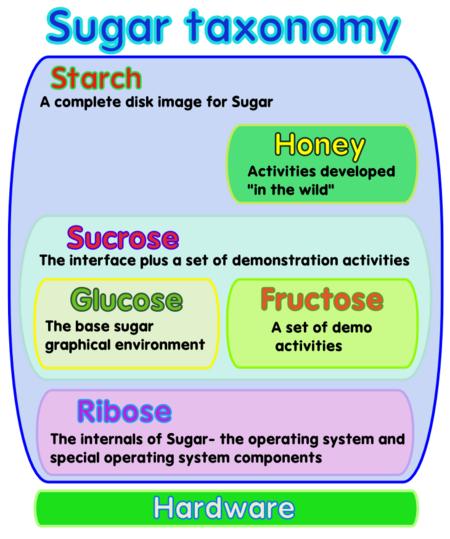Difference between revisions of "Sugar System Stack"
Jump to navigation
Jump to search
Garycmartin (talk | contribs) |
Garycmartin (talk | contribs) |
||
| Line 51: | Line 51: | ||
The layers in a Sugar system are: | The layers in a Sugar system are: | ||
| − | * | + | * Journal |
| − | * | + | * Activities |
* Sugar | * Sugar | ||
* Operating System | * Operating System | ||
Revision as of 21:45, 30 May 2009
Sugar is designed to encourage exploration and learning by children that have not been exposed to
or indoctrinated into any existing computing environment.
The Sugar Stack
Sugar is implemented on top of existing or modified operating systems and hardware. Sugar Activities ("Sugarized applications") are accessed by the user in the Sugar platform, integrate into a single Journal for storing, and are often designed with peer collaboration as a primary feature.
Sugar Application Stack
| Journal Content |
meta-tagged content | |||||||
| Sugar Activities |
Browse | Read | Write | Record | EToys | TurtleArt | et al... | |
| Application Framework |
Sugar | |||||||
| Operating System |
Fedora | Debian | Ubuntu | Linux, other | LTSP | Mac OSX] | MS Windows (QEMU) |
... |
| Hardware Platform |
OLPC XO-1 |
ASUS EEE PC |
Intel Classmate |
OLPC XO-2 |
... | |||
The layers in a Sugar system are:
- Journal
- Activities
- Sugar
- Operating System
- Computer Hardware
Sugar Application Stack (ASCII Text)
Sugar Labs has borrowed names from carbohydrate chemistry, which includes sugar, to personalize and help distinguish pieces of Sugar software. See Taxonomy and On the Naming of Sugar for background.
